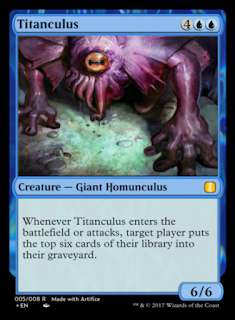- The Force Awakens
- Stranger Things (esp. season 1)
- The Good Place (h/t Nicole for pointing this out; the Parks and Rec mafia seems to have figured out how to write comedy with actual good people in it, e.g. Brooklyn Nine Nine)
- Most Ghibli movies
- Shin Godzilla (translated as Godzilla: Resurgence)
- The Martian
- Harry Potter, during the parts where the characters aren't making Teen Drama
- The Lord of the Rings
(Most of these fit a genre Killian came up with, "adventure," which maybe I'll write about at some point. Think Stargate or Indiana Jones, not The Bourne Identity. I don't think this is a coincidence; adventures give these kinds of characters a place to live, since they don't create their own drama by screwing things / each other up.)
This is a difference between Classic Star Trek (Next Gen, TOS, Voyager) and Discovery, and a difference between The Force Awakens and Rogue One (though the characters in Rogue One sometimes say the right words, they don't seem to mean them, and the director doesn't seem to believe in Good People Trying to Help Each Other).
Good People Trying to Help Each Other doesn't require characters to actually be perfectly good, considerate, heroic, etc. -- I think Hopper in Stranger Things 2 is a good example of a character who clearly has weaknesses, but is trying to deal with them in a sensible way (by just apologizing in a vulnerable way to the people he's hurt).
A related point is that some people try to remember Han Solo as some kind of "morally ambiguous" (i.e. bad) mercenary, but watching the original trilogy he's clearly a good, sensitive person wearing mercenary clothes. All of the male leads (Luke, Han, Obi-Wan, Yoda, to some extent Vader) in the original Star Wars trilogy are doing a masculine hero thing that's very different from what I remember from most masculine heroes of the last 20 years; they feel a lot of different emotions and express them openly (not just anger, but also excitement, panic, happiness, sadness, etc.), they're very focused on their relationships with other characters (not just Avengers quips or Firefly will-they-won't-they friendships/relationships), and they have to try really hard to succeed (not James Bond).
(I actually think this is the primary problem with the Prequel Trilogy, and the reason that The Phantom Menace feels the most like Star Wars -- after Qui-Gon dies, there are no good people left, and so no Star Wars happens for the rest of the movies; it's just Obi-Wan and Anakin doing a bad job of acting "cool".)
Rewatching, it's surprising that Han Solo is remembered as "cool" -- it's a really different version of "cool" than I see other places. Props to folks like Dwayne Johnson and Channing Tatum for attempting to bring this back in some of their work, and to The Force Awakens for building it into all of their characters -- nobody in that movie is "cool" at all, not even the bad guys.
(I'm not sure how these things do with feminine characters, and I suspect I can't really connect with those characters the way a more feminine person could. I'd love to know what more feminine people think about feminine heroes in these or other media.)
I think these kinds of media are fun, energizing, and (suspicious moral claim) ennobling to watch -- they're the kind of media where we can tell ourselves stories about how we should act, how we should treat one another, and how we should respond to tough situations. They believe that some outcomes and behaviors are good and others are bad, and that we can actually try to help each other do good things instead of acting as "cool" as possible in a meaningless world. Ultimately, that's why I think this kind of media is important; True Detective is beautiful, but it just can't be used to communicate who we want to be.








